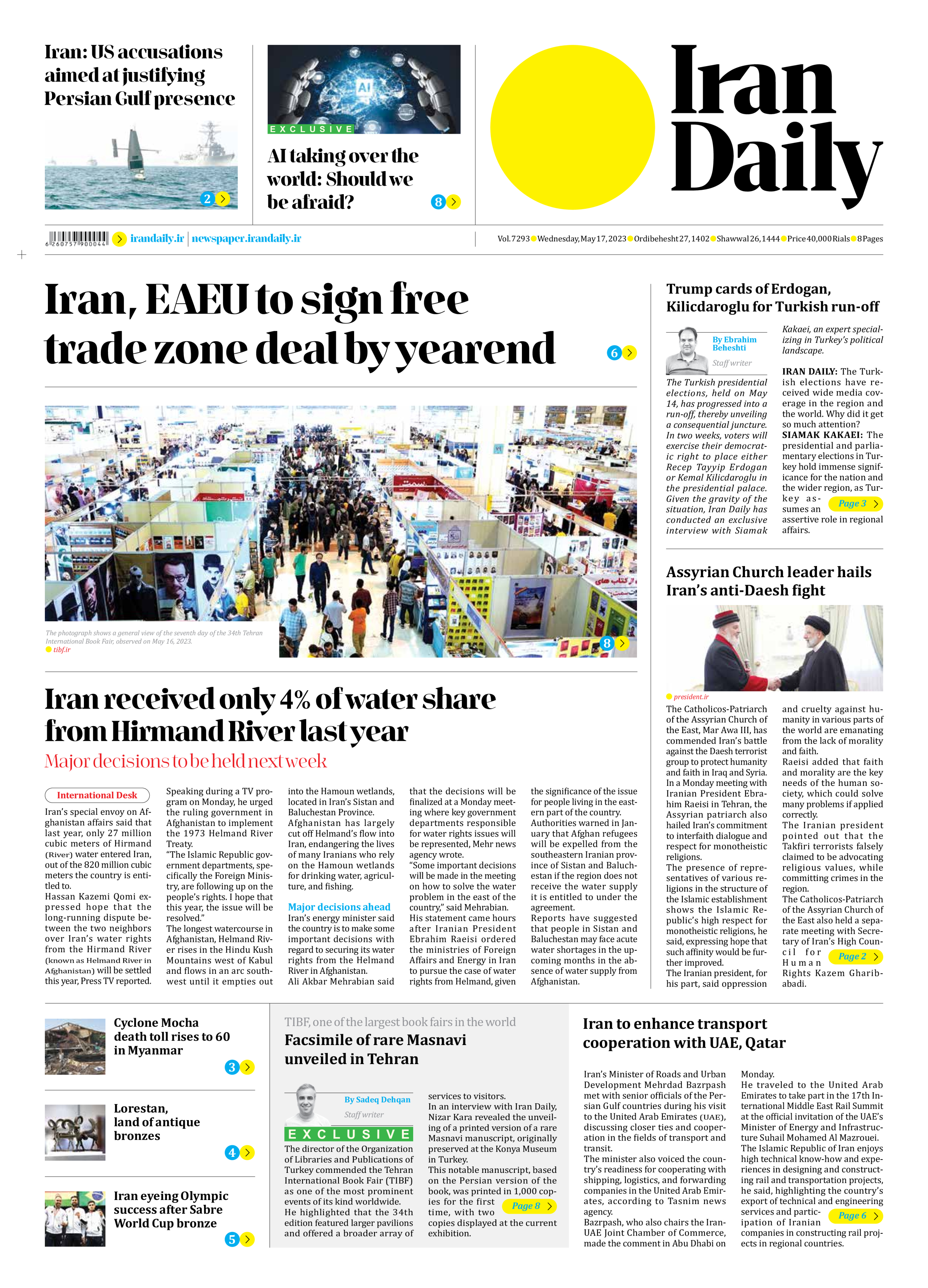
Iran received only 4% of water share from Hirmand River last year
Major decisions to be held next week
Iran’s special envoy on Afghanistan affairs said that last year, only 27 million cubic meters of Hirmand (River) water entered Iran, out of the 820 million cubic meters the country is entitled to.
Hassan Kazemi Qomi expressed hope that the long-running dispute between the two neighbors over Iran’s water rights from the Hirmand River (known as Helmand River in Afghanistan) will be settled this year, Press TV reported.
Speaking during a TV program on Monday, he urged the ruling government in Afghanistan to implement the 1973 Helmand River Treaty.
“The Islamic Republic government departments, specifically the Foreign Ministry, are following up on the people’s rights. I hope that this year, the issue will be resolved.”
The longest watercourse in Afghanistan, Helmand River rises in the Hindu Kush Mountains west of Kabul and flows in an arc southwest until it empties out into the Hamoun wetlands, located in Iran’s Sistan and Baluchestan Province.
Afghanistan has largely cut off Helmand’s flow into Iran, endangering the lives of many Iranians who rely on the Hamoun wetlands for drinking water, agriculture, and fishing.
Major decisions ahead
Iran’s energy minister said the country is to make some important decisions with regard to securing its water rights from the Helmand River in Afghanistan.
Ali Akbar Mehrabian said that the decisions will be finalized at a Monday meeting where key government departments responsible for water rights issues will be represented, Mehr news agency wrote.
“Some important decisions will be made in the meeting on how to solve the water problem in the east of the country,” said Mehrabian.
His statement came hours after Iranian President Ebrahim Raeisi ordered the ministries of Foreign Affairs and Energy in Iran to pursue the case of water rights from Helmand, given the significance of the issue for people living in the eastern part of the country.
Authorities warned in January that Afghan refugees will be expelled from the southeastern Iranian province of Sistan and Baluchestan if the region does not receive the water supply it is entitled to under the agreement.
Reports have suggested that people in Sistan and Baluchestan may face acute water shortages in the upcoming months in the absence of water supply from Afghanistan.







